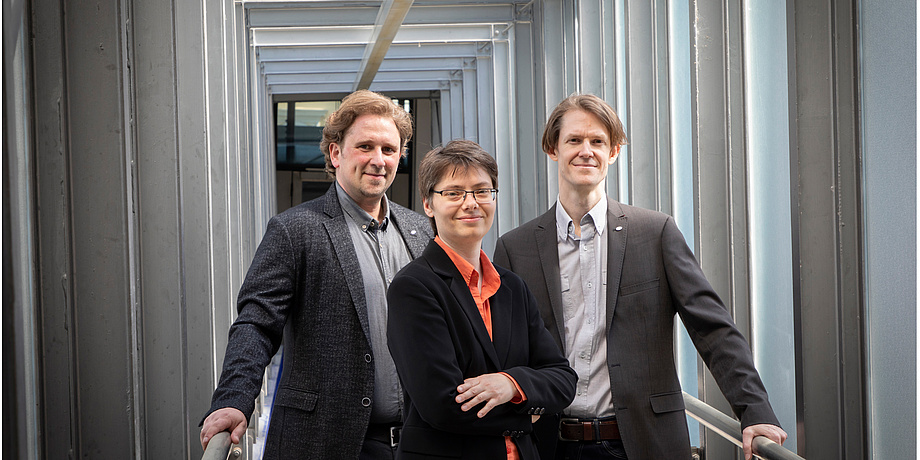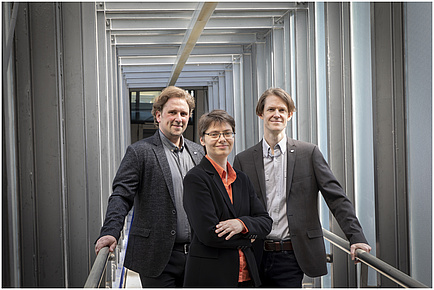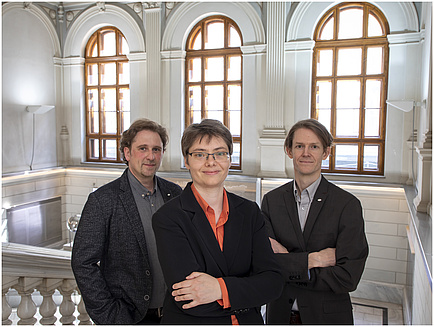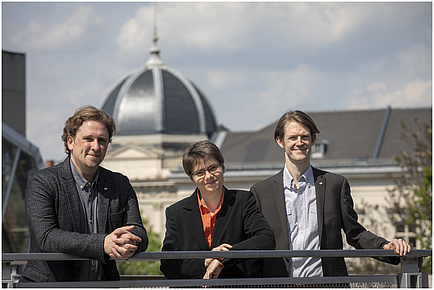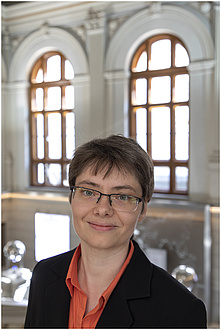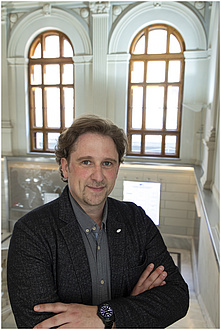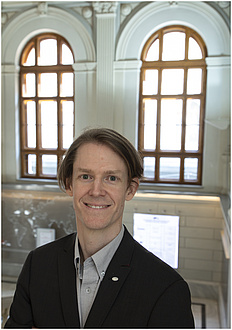The research budgets of the three CD laboratories range between 1.5 and 2 million euros each for seven years, about half of which is funded by the public sector and the other half by the corporate partners. As the go ahead was celebrated in the Hall of TU Graz, Rector Harald Kainz was present along with the president of the Christian Doppler Society, Reinhart Kögerler, and representatives of the respective corporate partners.
Economics ministry promotes basic research as a competitive advantage
‘There are no topic requirements for Christian Doppler labs,’ says Margarete Schramböck, Federal Minister for Digital and Economic Affairs. ‘All topics for which companies have need of research are important and eligible. This results in high scientific quality and diverse new findings – whether in materials science, 3D printing, Industry 4.0 or other fields. And it is this that makes our CD labs so valuable: they bring together science and economy and in this way develop the foundations for various and sometimes unexpected applications in relevant branches of business.’Ten active CD labs at TU Graz
TU Graz has opened six new Christian Doppler labs in seven months, thus bringing its current total to ten CD labs. ‘This shows the great dynamism of TU Graz with regard to CD labs. These labs play a very special role in the research portfolio of TU Graz because the shared work of researchers and corporate partners on fundamental questions for a period of seven years makes the cooperation model of the CD lab a model example for industry-oriented basic research,’ says Rector Harald Kainz. This is the first time that three CD labs have been opened on one shared occasion.Three most recent CD labs at TU Graz at a glance
CD-Lab for Direct-Write Fabrication of 3D Nano-ProbesHead: Harald Plank
Corporate partner: GETec Microscopy GmbH
The fabrication method of focused electron beam induced deposition (known as FEBID) is at the centre of focus of the CD lab led by Harald Plank. Using this technology, functional nanostructures can be produced on almost any material in one single step – even on rough surfaces. While this meanwhile works very well for planar structures and is suitable for making nano gas sensors for the detailed measurement of exhaust or toxic substances by means of mobile end devices, FEBID production of complex, free-standing 3D architectures is still in its infancy. Together with the industrial partner GETec Microscopy GmbH, laboratory head Harald Plank and the CD lab team will create functional microscopic surfaces using FEBID and carry out research on concepts for novel 3D nano probes. Harald Plank: ‘Using FEBID-based 3D nano printers can help modify already finished micro and nano parts in a targeted way. Through this, for example, the performance of atomic force microscopes can be significantly increased by making special 3D structures act as nano probes in order to make additional material information accessible at the nanometer resolution range. For the products of our corporate partner GETec, this results in new possibilities in the field of highly localised, correlated material analysis.“
This CD lab is anchored in the Field of Expertise “Advanced Materials Science”.
CD-Lab for Location-aware Electronic Systems
Head: Klaus Witrisal
Corporate partner: SES-imagotag GmbH
The CD lab under the leadership of Klaus Witrisal deals with positioning systems for applications in which satellite systems are not available or are not accurate enough, for instance in interior spaces. An important focus of the research is on radio-based measurement methods. Location-aware electronic systems have the capability to determine the position of their system nodes in space thus allowing a digital model to be obtained from the real layout. ‘In cooperation with our corporate partner SES-imagotag GmbH, we are working on applications for the retail trade, for example, to achieve an interactive shopping experience as in online stores by means of positioning technology,’ explains Witrisal. The long-term goal is to investigate the theoretical boundaries of such location-aware systems and to develop and validate key algorithms and hardware components for them. The result should be a ‘cognitive’ sensor system, which means that the sensors not only capture and process measuring data, but can also make deductions from them. Additional expertise in microwaves, measuring and switching technology will be brought in from an external module at TU Wien, which will be led by Holger Arthaber. This CD lab is anchored in the Field of Expertise “Information, Communication & Computing”.
CD-Lab for Mass Transport through Paper
Head: Karin Zojer
Corporate partner: Mondi Group
Paper is mechanically stable and an ecologically and economically very attractive product, and is thus the material of choice for many packaging applications. Porosity is at centre stage of this CD lab. Laboratory head Karin Zojer summarises: ‘We want to understand the special pore structure of paper and be able to explain its influence on the transport of diverse types of particles through it. Only with this knowledge can the porosity of paper be swiftly and optimally adapted to the desired packaging application.’ With the help of corporate partner Mondi Group at our side, the pore structure of paper will be microscopically investigated. Building on this, mathematical models will be developed which will help us scientifically investigate various transport processes through paper. The aim of the modelling is to predict how individual transport processes through paper are determined by the pore structure. This concerns, for instance, the role of the pores during the drying process of ink drops during printing, also the ventilation processes when paper sacks are filled with bulk materials, and also discussion about the reciprocal effects between packaging and the packaged goods, which would be of great importance especially for foodstuffs packaging.
This CD lab is anchored in the Field of Expertise “Advanced Materials Science”.
Active CD-Labs at TU Graz:
- CD-Laboratory for Location-aware Electronic Systems
- CD-Laboratory for Direct-Write Fabrication of 3D Nano-Probes
- CD-Laboratory for Mass Transport through Paper
- CD-Laboratory for Quality Assurance Methodologies for Autonomous Cyber-Physical Systems
- CD-Laboratory for Design of High-Performance Alloys by Thermomechanical Processing
- CD-Laboratory for Model-Based Control of Complex Test Bed Systems
- CD-Laboratory for Brushless drives for pump and fan applications
- CD-Laboratory for Fiber Swelling and Paper Performance
- CD-Laboratory for Semantic 3D Computer Vision
- CD-Laboratory for Lithium Batteries - Ageing Effects, Technology and new Materials
